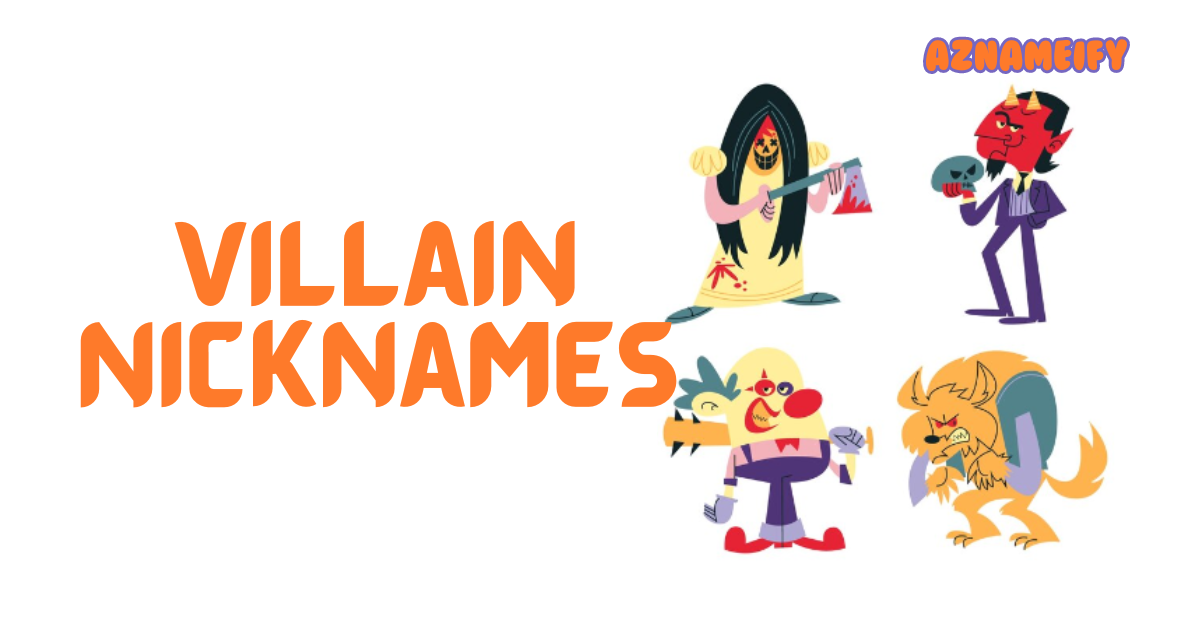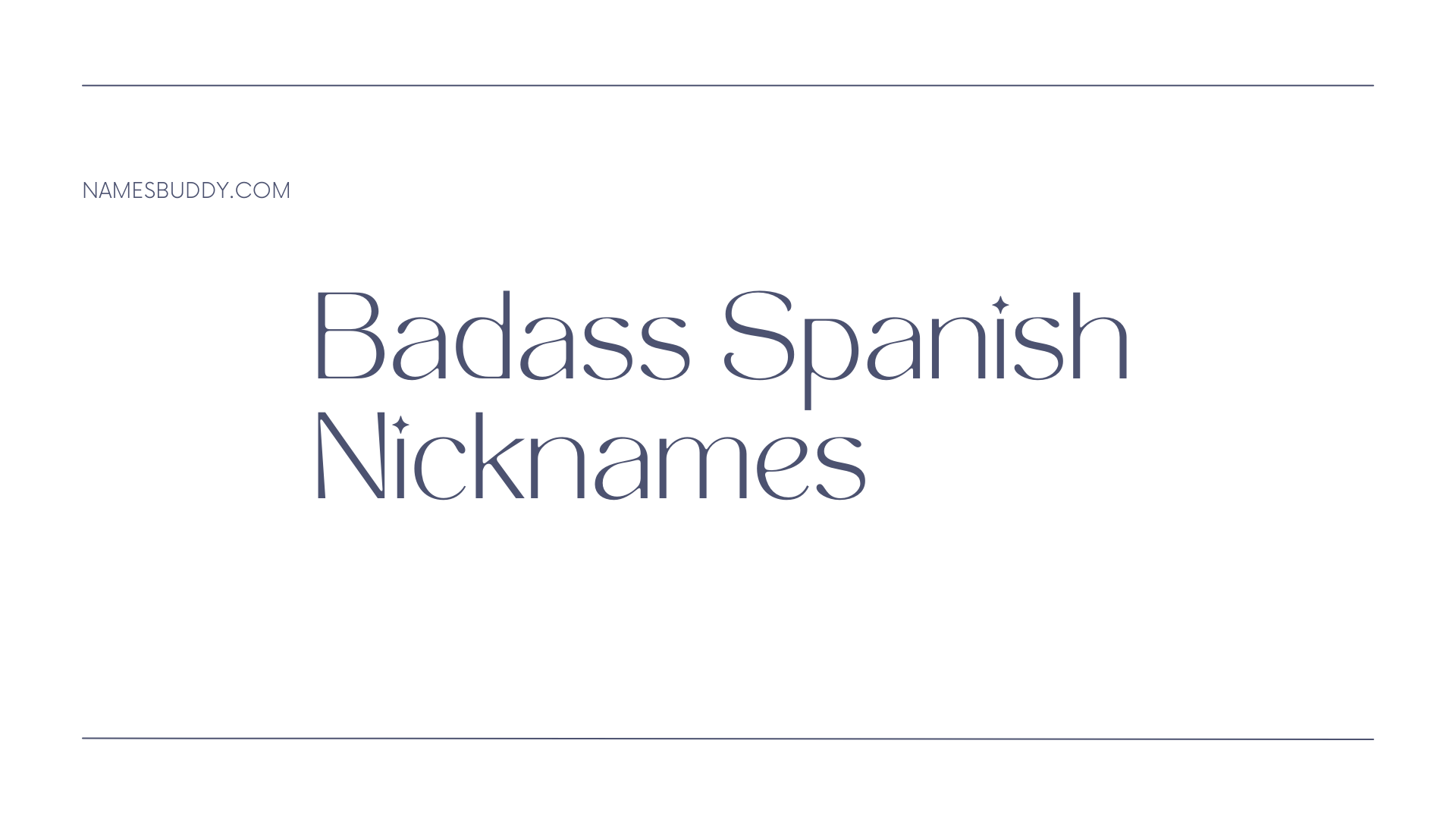Ever wondered why certain nicknames drive you up the wall? Let’s dive into the world of irritating nicknames and uncover why they can be so annoying. Whether it’s a playful jab or an outright cringeworthy moniker, these nicknames have a way of sticking around longer than we’d like. In this article, we’ll explore the psychology behind them, how they impact relationships, and practical tips to deal with them.
Picture this: you're hanging out with friends, and suddenly someone calls you by a nickname that makes your skin crawl. It could be something as simple as "Chunky" or "Shorty," but for some reason, it just doesn't sit right. Irritating nicknames have this uncanny ability to linger in our minds, evoking feelings of frustration or even embarrassment. But why do they affect us so deeply?
Let’s face it, nicknames can be endearing, but they can also cross the line into annoying territory. They’re not just random words thrown around; they carry emotional weight, often tied to personal experiences or cultural perceptions. In this article, we’ll dissect what makes a nickname irritating, how it impacts our self-esteem, and strategies to handle it without losing your cool.
Read also:How Old Is Mrbeast Unveiling The Age And Journey Of The Worlds Biggest Philanthropist Streamer
What Makes Nicknames Irritating?
Not all nicknames are created equal. Some roll off the tongue with charm, while others leave a sour taste in your mouth. To understand what makes a nickname irritating, we need to delve into the psychology of human communication and relationships. Here’s a breakdown:
- Personal Association: Nicknames often carry memories, whether good or bad. If a nickname reminds you of a time when you felt self-conscious or embarrassed, it’s likely to bug you.
- Cultural Sensitivity: Certain nicknames might come across as offensive or culturally insensitive. For example, nicknames that mock accents or ethnic traits can be downright irritating.
- Repetition: Even a harmless nickname can become annoying if it’s used too frequently. Overuse tends to amplify the irritation factor.
Understanding these factors can help us navigate the tricky world of nicknames and prevent unnecessary friction in our interactions.
How Do Irritating Nicknames Impact Our Self-Esteem?
Believe it or not, irritating nicknames can have a lasting impact on our self-esteem. When someone repeatedly uses a nickname that makes us uncomfortable, it can erode our confidence and create feelings of inadequacy. Let’s explore how this happens:
First off, nicknames often highlight specific traits or characteristics about a person. If those traits are perceived as negative or undesirable, it can lead to self-doubt. For instance, being called "Chunky" might make someone overly conscious about their weight, even if they’re perfectly healthy. The constant reinforcement of such labels can chip away at one’s self-image.
Moreover, nicknames can create a sense of being "boxed in" or defined by a single aspect of our identity. This can be particularly frustrating for individuals who are trying to break free from limiting stereotypes or outdated perceptions.
Psychological Effects of Persistent Nickname Use
When a nickname sticks around for too long, it can have long-term psychological effects. Research shows that persistent use of irritating nicknames can lead to increased stress levels and even anxiety in some cases. According to a study published in the Journal of Social Psychology, individuals who experience frequent nickname-related teasing are more likely to develop negative self-perceptions over time.
Read also:Unveiling Anime Characters With Long White Hair A Journey Into Stunning Anime Worlds
It’s not just about the words themselves; it’s about the context in which they’re used. If a nickname is deployed in a mocking or dismissive tone, it can leave lasting emotional scars. On the flip side, if the nickname is used affectionately, it might not bother us as much. The key lies in understanding the intent behind the nickname and how it’s received by the person on the receiving end.
Common Types of Irritating Nicknames
Not all irritating nicknames are created equal. Some are playful, while others are downright mean-spirited. Here’s a look at the most common types:
1. Physical Appearance-Based Nicknames
These nicknames focus on a person’s physical traits, such as height, weight, or facial features. Examples include "Shorty," "Chunky," or "Freckles." While some people might embrace these nicknames, others find them deeply irritating, especially if they highlight traits they’re self-conscious about.
2. Personality-Based Nicknames
These nicknames attempt to capture a person’s personality or behavior. Think "Goofball" or "Grumpy." While they might start off as a joke, they can quickly become annoying if they oversimplify or misrepresent someone’s true nature.
3. Culturally Insensitive Nicknames
Nicknames that mock cultural or ethnic traits are not only irritating but also offensive. These nicknames can perpetuate stereotypes and create a hostile environment for the person being targeted.
Why Do People Use Irritating Nicknames?
Now that we’ve explored the impact of irritating nicknames, let’s turn our attention to why people use them in the first place. Understanding the motivations behind nickname usage can help us address the issue more effectively.
- Playfulness: Some people use nicknames as a way to lighten the mood or inject humor into a conversation. While this might work in certain contexts, it can backfire if the recipient doesn’t find it funny.
- Control: Nicknames can be a subtle way of exerting control or dominance in a relationship. By assigning a nickname, one person can establish themselves as the "name-giver," which can create power imbalances.
- Tradition: In some cultures, nicknames are passed down through generations or used as a form of endearment. However, what works in one culture might not translate well in another.
It’s important to recognize that not all nickname usage is malicious. Sometimes, people don’t realize how their words might be perceived. This is where open communication and mutual respect come into play.
Strategies to Handle Irritating Nicknames
So, what can you do if someone keeps calling you by an irritating nickname? Here are some practical strategies to help you deal with the situation:
1. Address It Directly
One of the most effective ways to handle irritating nicknames is to address the issue directly. Calmly explain why the nickname bothers you and ask the person to stop using it. Most people are willing to respect your wishes if you communicate them clearly.
2. Use Humor
Humor can be a powerful tool in diffusing tense situations. If someone uses an irritating nickname, try responding with a lighthearted joke or a playful comeback. This can help shift the dynamic and make the nickname feel less serious.
3. Set Boundaries
If direct communication doesn’t work, it might be time to set firmer boundaries. Let the person know that you’re serious about not wanting to be called by that nickname. Consistency is key here; if you let it slide once, they might think it’s okay to continue.
When Nicknames Cross the Line
Sometimes, nicknames go beyond being merely irritating and enter the realm of bullying or harassment. If someone persistently uses a nickname that makes you uncomfortable, despite your requests to stop, it’s important to take action. Here’s what you can do:
- Document the Incidents: Keep a record of when and where the nickname was used, along with any witnesses present. This can be helpful if you need to escalate the issue.
- Seek Support: Talk to friends, family, or colleagues about the situation. They might offer valuable advice or support in addressing the issue.
- Involve Authorities: If the nickname usage constitutes harassment, consider involving HR or other relevant authorities to mediate the situation.
Remember, your feelings are valid, and no one has the right to make you feel uncomfortable with their words.
Conclusion: Taking Control of Your Nickname Narrative
In conclusion, irritating nicknames can have a significant impact on our emotional well-being and self-esteem. Whether they’re used playfully or maliciously, it’s important to address them in a way that respects both your boundaries and the other person’s intentions. By understanding the psychology behind nickname usage and employing effective communication strategies, you can take control of your nickname narrative and create healthier, more respectful relationships.
So, the next time someone calls you by an irritating nickname, don’t hesitate to speak up. Your voice matters, and your feelings deserve to be heard. Share your thoughts in the comments below, and don’t forget to check out our other articles for more insights on communication and personal growth.
Table of Contents
- What Makes Nicknames Irritating?
- How Do Irritating Nicknames Impact Our Self-Esteem?
- Common Types of Irritating Nicknames
- Why Do People Use Irritating Nicknames?
- Strategies to Handle Irritating Nicknames
- When Nicknames Cross the Line
- Conclusion: Taking Control of Your Nickname Narrative


